- Leather quality
- Excellent off-road ability
- Good value for money
- Noisy diesel engine
- Steering wheel controls
- Crossover rivals are more comfortable
So, you’re looking for a seven-seat SUV? Join the club – there’s thousands of others in the same position as you. Well there are several options on the market and one of them is the recently updated Mitsubishi Pajero Sport, which – according to its maker – ticks all of the boxes for those wanting a practical seven-seat SUV that can also tow and off-road like a champion. We tested the top of the range 2020 Mitsubishi Pajero Sport Exceed to see if it really is the whole package for those looking for an SUV.
Price & Specs: 8/10
The 2020 Mitsubishi Pajero Sport range starts off with the five-seat GLX model which can be had for $46,990 plus on road costs (although at the moment Mitsubishi are offering it for $45,990 drive away). It includes features such as an 8.0-inch touch screen with Apple CarPlay and Android Auto, single-zone climate control, a four-speaker stereo, digital radio, seven airbags, low-speed auto emergency braking (AEB), keyless entry and start, LED lighting, auto windows (though only from the driver’s side), 18-inch alloy wheels and a full-size alloy spare wheel. The equivalent Toyota Fortuner costs $49,690 plus on-road costs, which is an extra $2,700 just on list price alone.
The mid-spec 2020 Mitsubishi Pajero Sport GLS can be had in either five or seven seat versions for $51,490 ($52,490) and $52,490 ($53,990) respectively. They gain leather upholstery, a rear differential lock, auto lights and wipers, dual-zone climate control, adaptive cruise control, privacy glass and a power tailgate over the entry GLX.
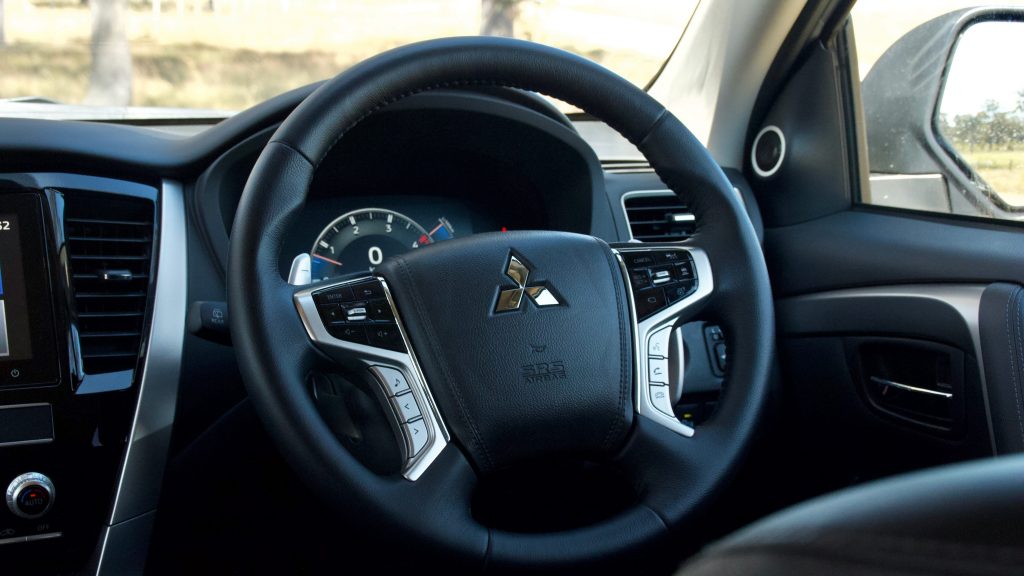
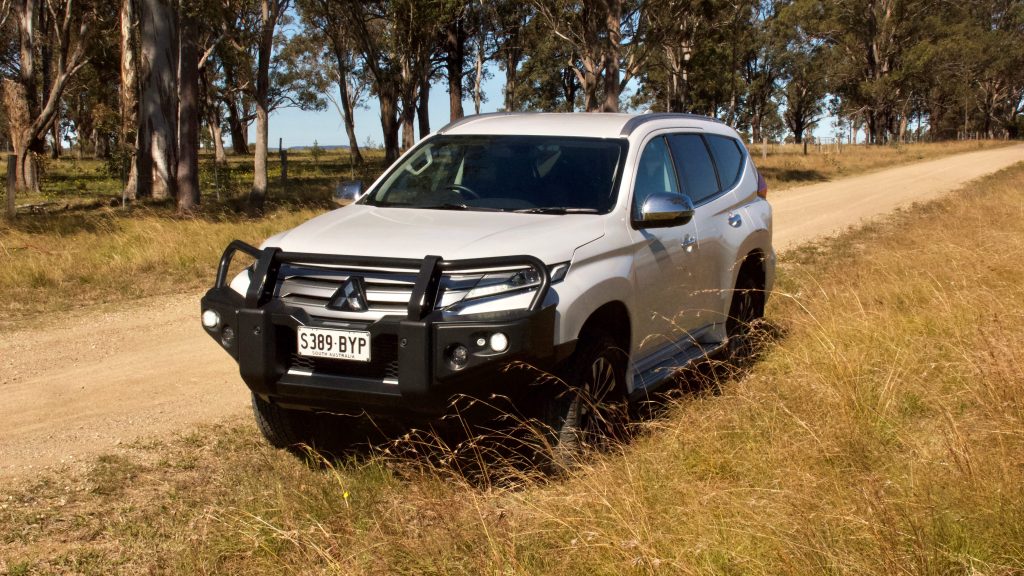
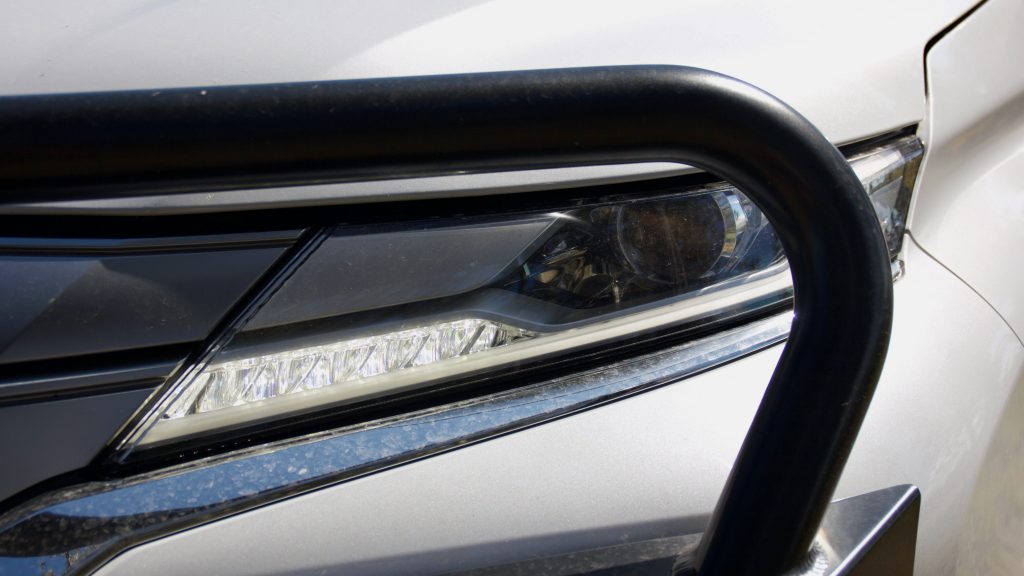
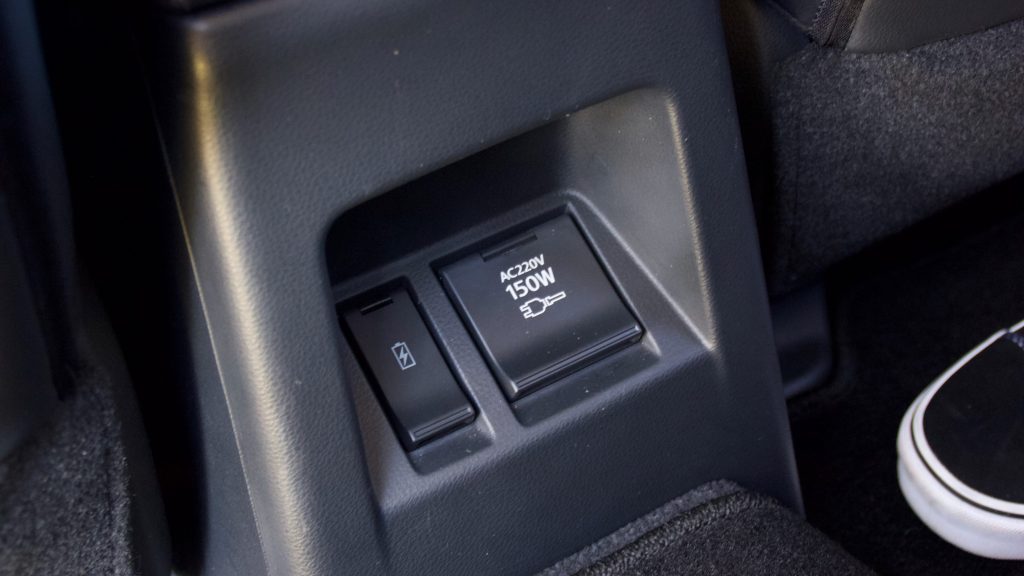
The model we tested was the top spec 2020 Mitsubishi Pajero Sport Exceed with retails for $57,190 ($59,990 drive away). Over the GLS, the Exceed adds equipment such as a digital driver display, inbuilt satellite navigation, blind-spot monitoring (BSM) with rear cross-traffic alert, a 360-degree parking camera, lane departure warning, an eight-speaker sound system and access to a smartphone app that allows you to open and lock the car, open the boot, etc.
It’s pretty well equipped, though features such as a sunroof, memory seating and a premium sound system should be standard considering it’s close to 60 grand by the time you drive it out of the showroom. There’s also a lack of auto high beam, lane departure warning and lane keep assist.
Our test car also had some dealer fit accessories, including a $3,513 front bull bar, $933 side steps to aid ingress and egress to the vehicle and a $1,262 tow bar with a $685 electric brake controller. The braked towing capacity of the Pajero Sport is 3,100kg which is 300kg better than the Toyota Fortuner and 100kg better than a Ford Everest with the 3.2-litre engine.
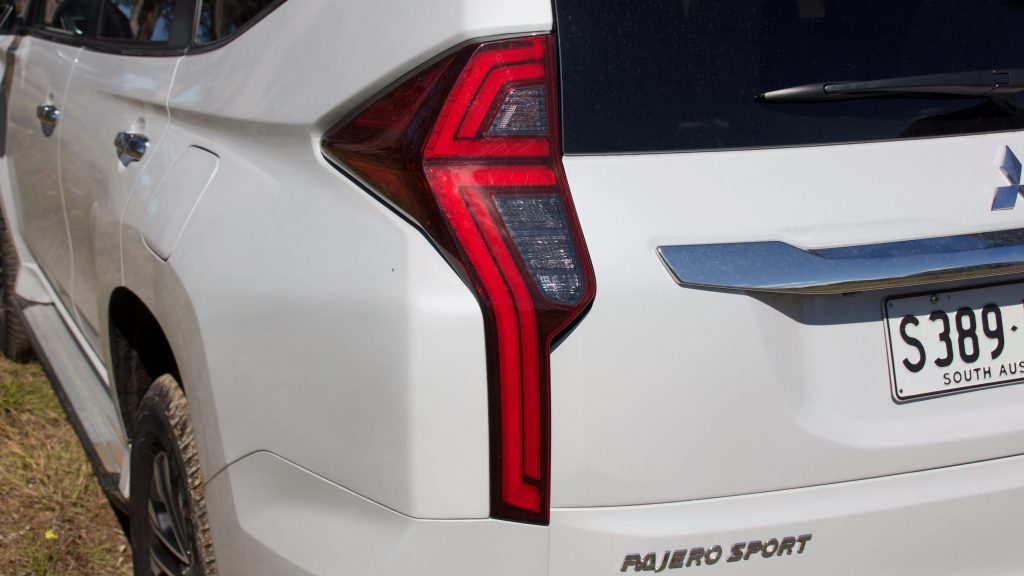
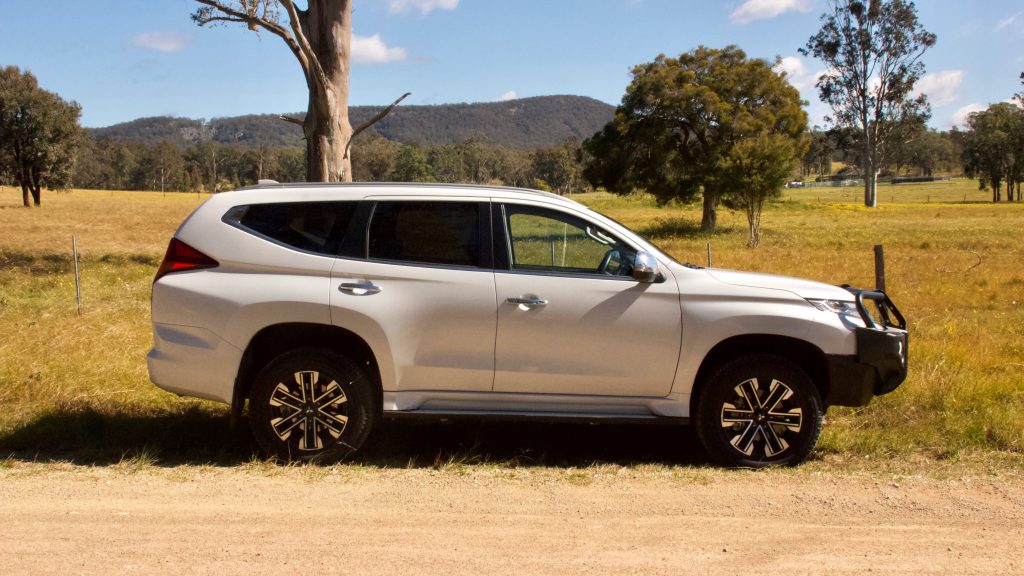
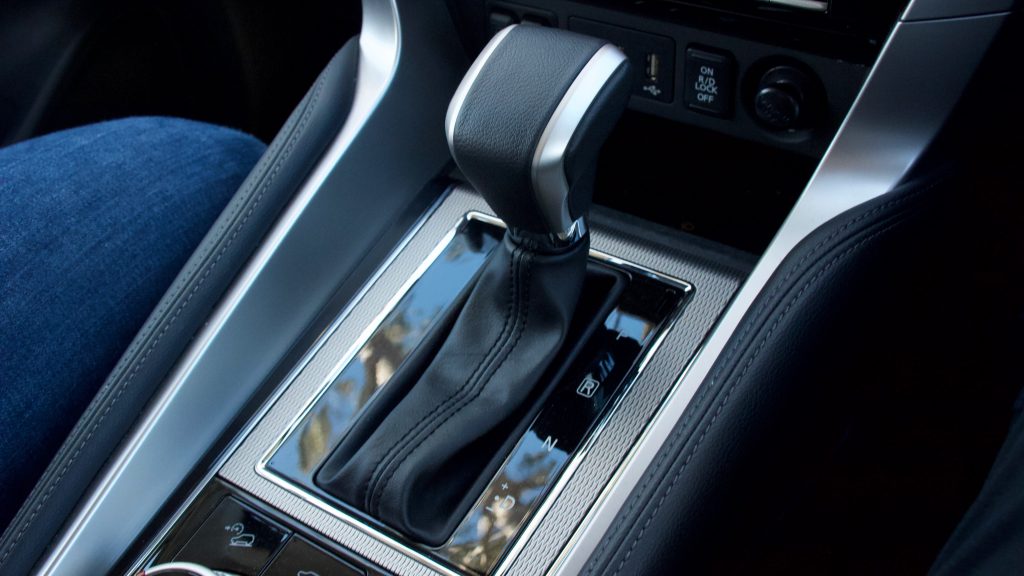
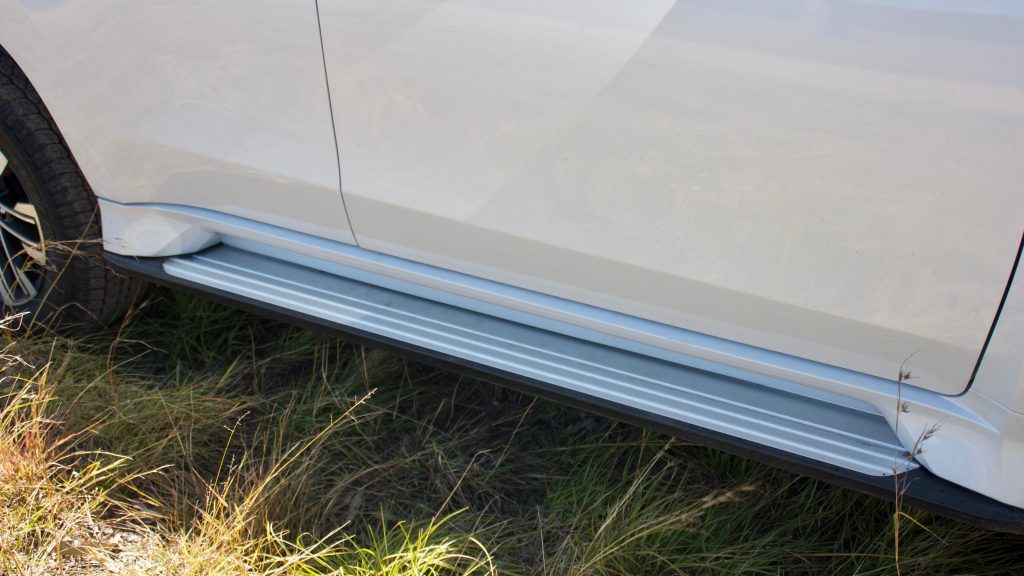
The colour on our test car is known as ‘White Diamond Metallic’ and costs an extra $940 – other metallic colours available are $740 and include ‘Black Mica’, ‘Terra Rossa’, ‘Dark Blue’, ‘Sterling Silver’ and ‘Graphite Grey’. The only standard colour offered on the 2020 Mitsubishi Pajero Sport is standard white.
Performance & Economy: 6/10
The only engine option for the 2020 Mitsubishi Pajero Sport is a 133kW/430Nm 2.4-litre four-cylinder turbo diesel, which puts its power to all four wheels through an eight-speed torque converter automatic transmission. There is also a dual-range four-wheel drive system and rear differential lock, which help in getting over rough terrain or navigating gravel paths.
The outputs of the engine are modest on paper and the Pajero Sport is a little slow to get up to speed – 0-100km/h is dealt with in around 11 seconds. While it’s obviously not a performance car, we do think that it should have more grunt, especially as many people buy these vehicles to tow caravans.
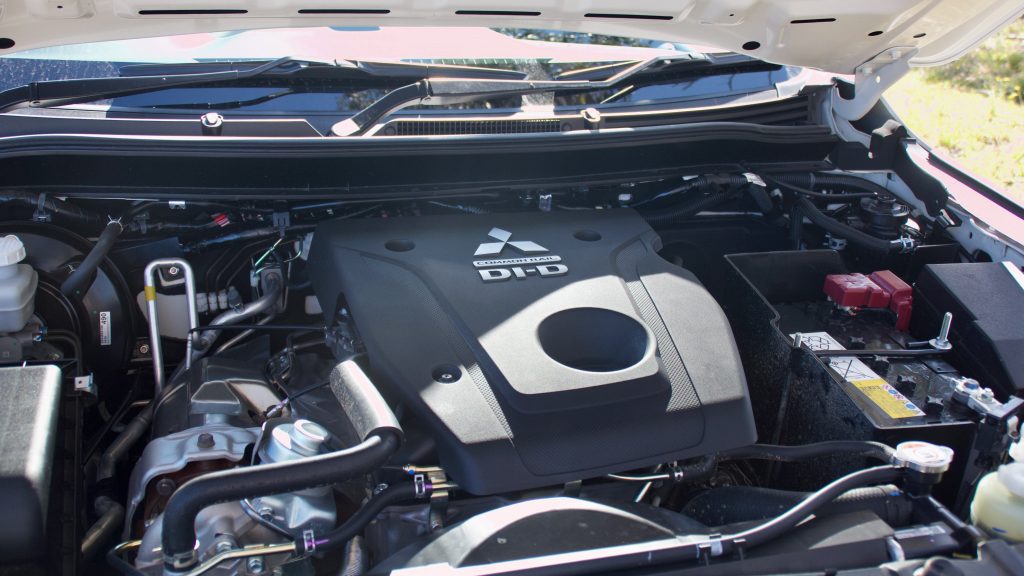
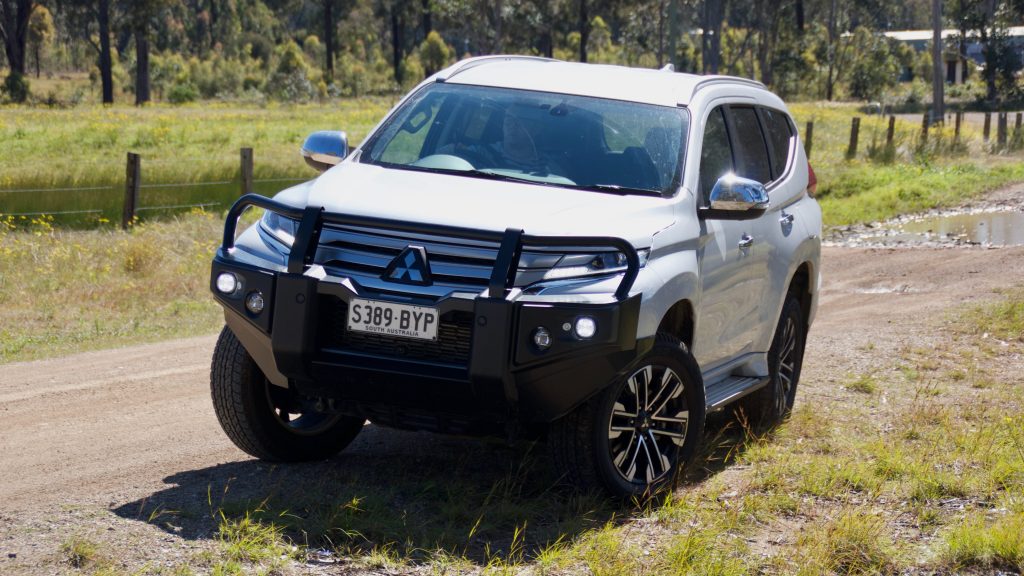
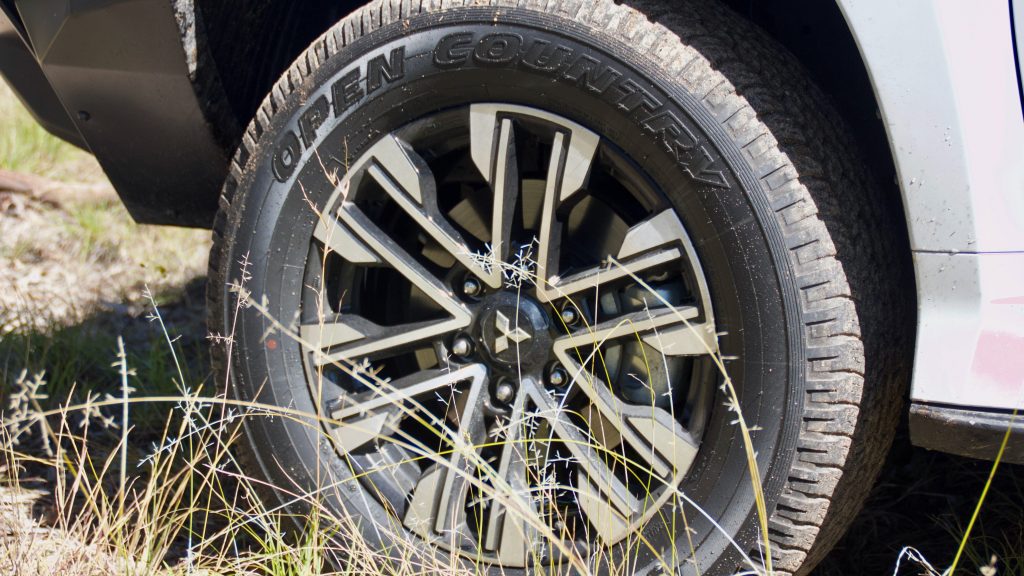
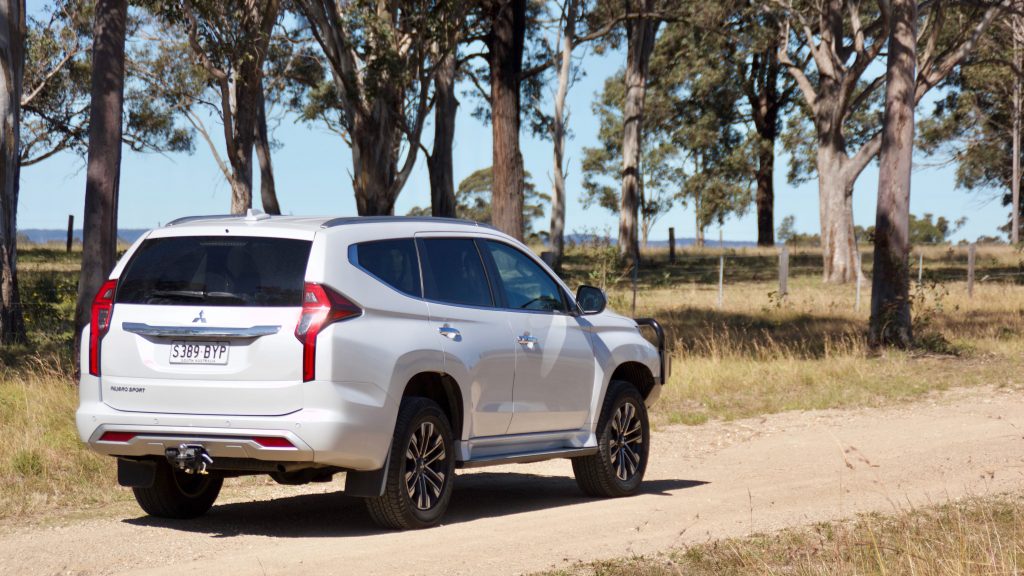
When compared to its rivals the Pajero Sport’s engine is slightly down on power as the Ford Everest with the 3.2-litre engine has an extra 10kW of power at 143kW and the 2.0-litre twin turbo Everest has a further 14kW at 157kW/500Nm.
This lack of grunt is especially noticeable when attempting to get to highway speeds. Flooring the throttle results in a wave of unrefined four-cylinder diesel noise. Thankfully when at speed (and not using the engine), it’s a very quiet car to drive. The eight-speed auto is also intuitive, and better than the six-speed unit in the Triton.
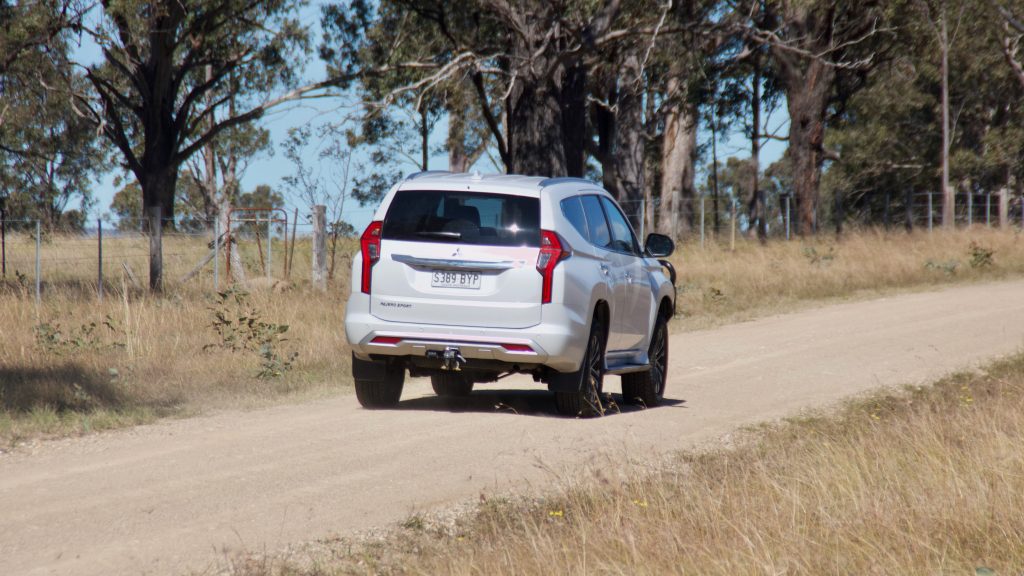
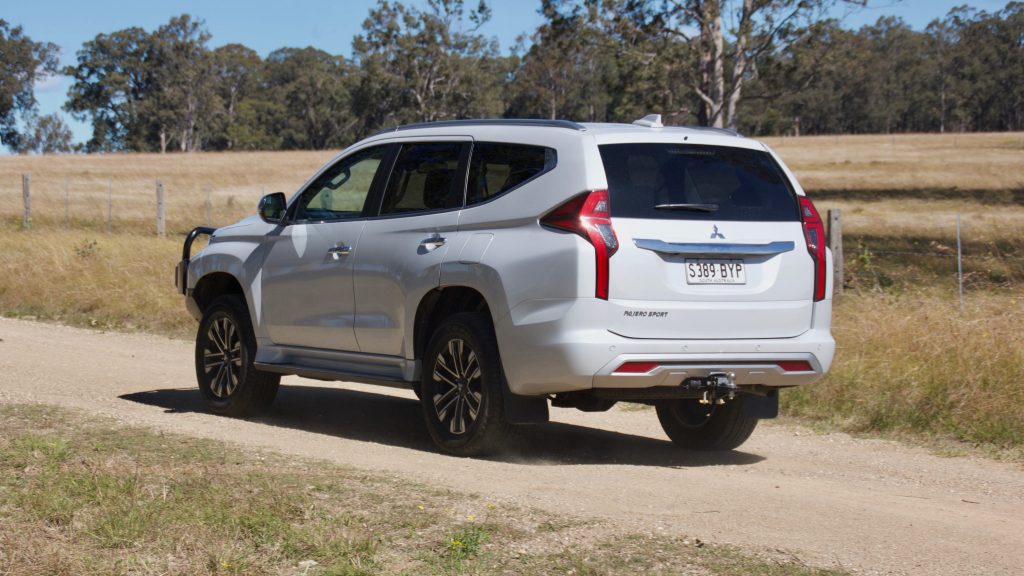
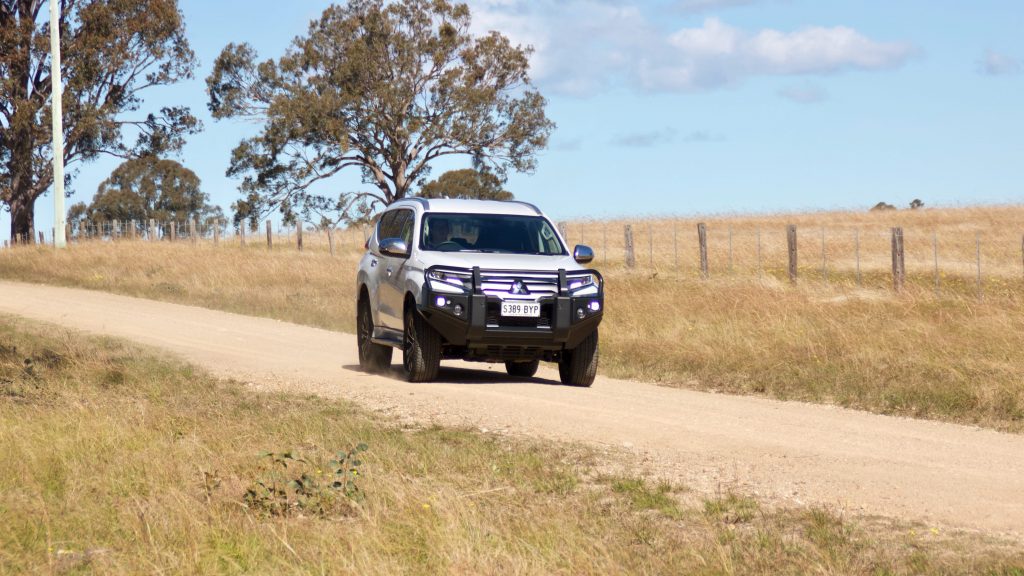
The claimed average fuel consumption for the 2020 Mitsubishi Pajero Sport Exceed is 8.0L/100km but in our testing, we got around 10L/100km and that was skewed towards highway driving. Based on that, expect a minimum range of 600 or so km from a tank.
Ride & Handling: 7/10
While it’s not immediately obvious looking at or sitting in the Pajero Sport, it’s actually based on the Triton ute. This makes it quite tough off road and endlessly reliable, but definitely not the most refined. Thankfully, the Pajero Sport’s ride quality is better than the Triton thanks to having more weight over the rear and independent rear suspension. Having said that, it’s still not as comfortable as a crossover SUV and if you don’t need the Pajero Sport’s off-road ability, we’d recommend a Kia Sorento, Mazda CX-9 or Skoda Kodiaq to carry seven in comfort.
The Pajero Sport’s slow steering is also a carryover feature from the Triton – it’s slow. Dynamically, the Pajero Sport is no match for a CX-9 or Kodiaq – chucking it into corners results in the high centre of gravity being immediately felt and it wallows in corners. If you haven’t already guessed, the Pajero Sport is more than happy cruising along instead of chasing lap times, and that’s completely fine.
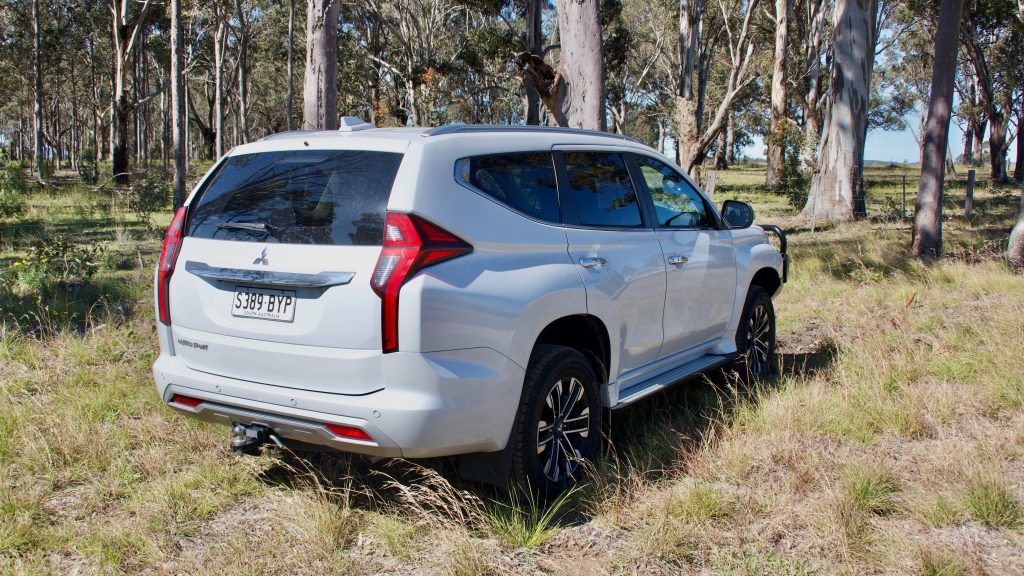
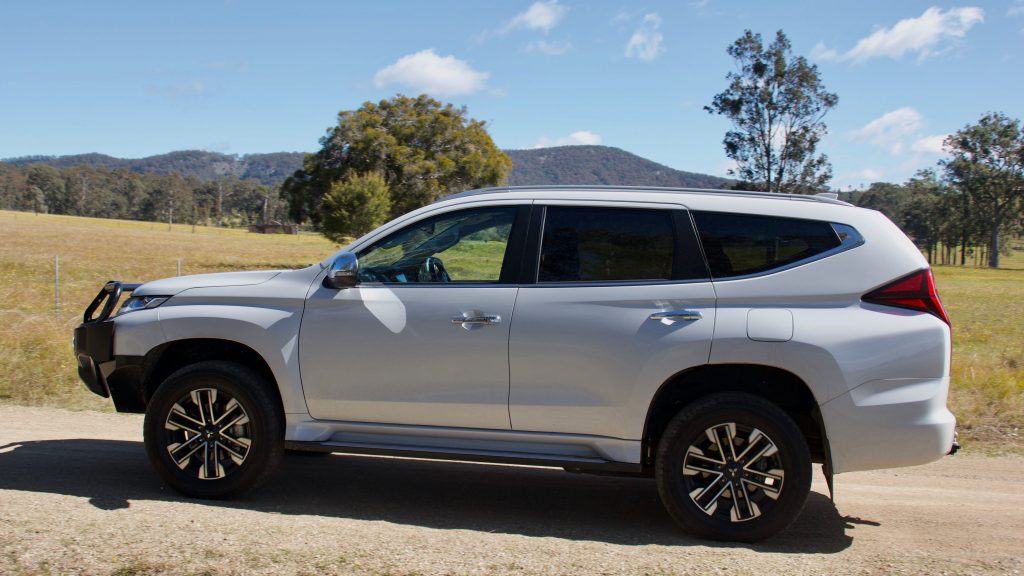
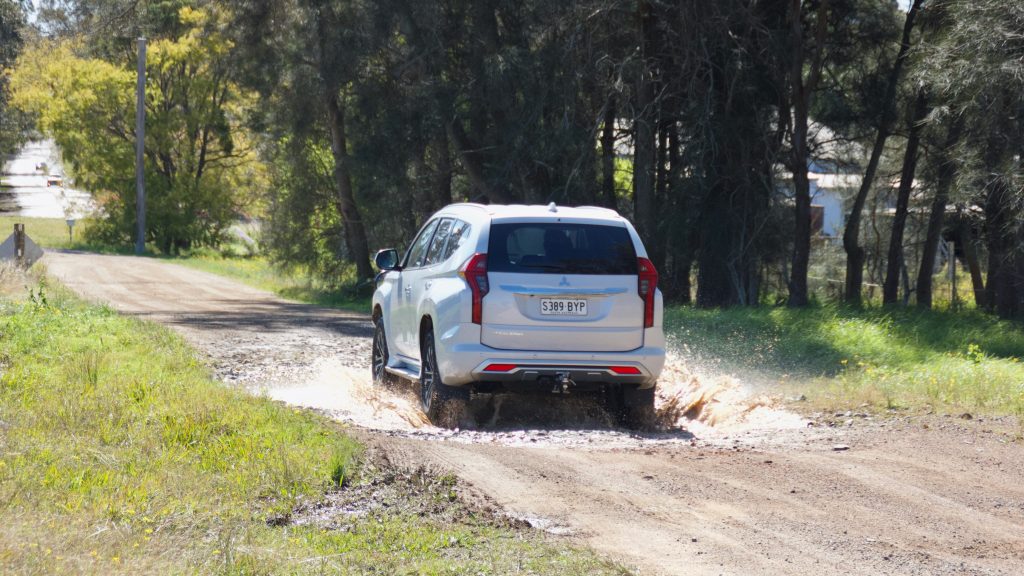
Off-road, the Pajero Sport is excellent. Thanks to 218mm of ground clearance, it really powers over most terrain with ease. Mitsubishi’s ‘Super-Select II’ four-wheel drive system is standard equipment, as is a rear diff lock, which gives you 2H (two-wheel drive high-range), 4H (four-wheel drive high-range), 4HLC (four high-range with the centre diff locked) and 4LLC (four low-range) for when the going gets tough. It also features mud, sand, rock and gravel modes that tailor the car for extra ability. In all, the Pajero Sport is a great car off-road, and better than the Triton on which it’s based on it.
Interior & Practicality: 7/10
As the Pajero Sport is now Mitsubishi’s most expensive model, it does feature the nicest cabin in the company’s lineup. Although based on the Triton (which is obvious inside), the Pajero Sport’s cabin does feature enough to elevate it above its ute sibling such as leatherette on the lower centre console, the configurable digital driver’s display, the soft leather upholstery and the centre console, which is much higher than in the Triton. The hard plastics on the dashboard and doors are carryovers, unfortunately.
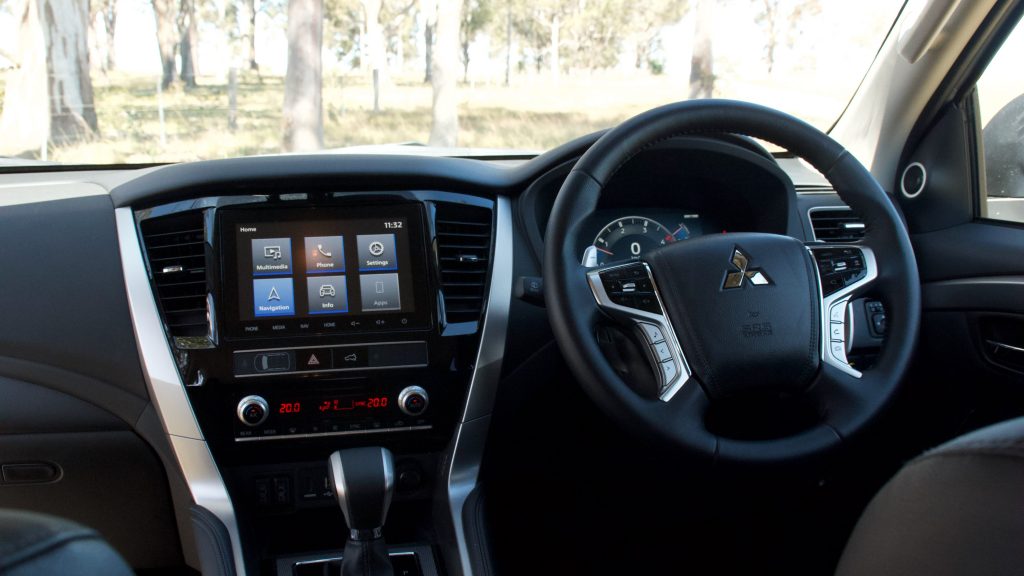
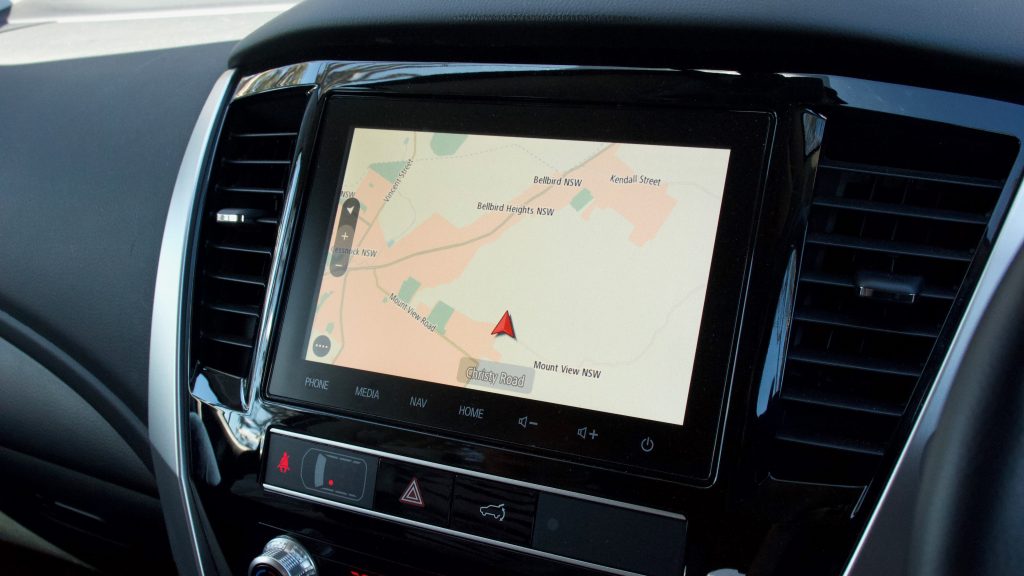
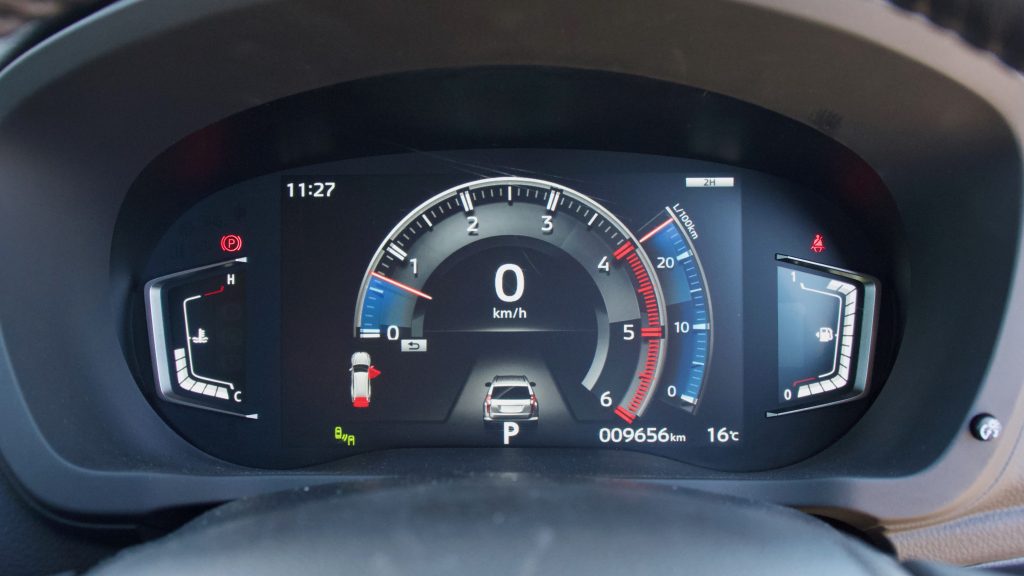
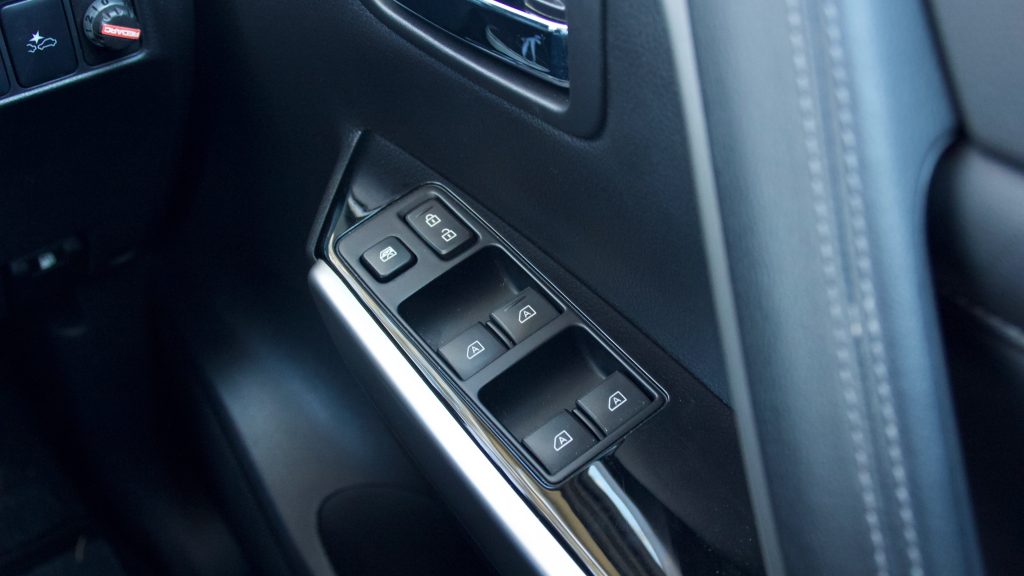
The seats of the Pajero Sport are extremely comfortable and on longer journeys you aren’t left uncomfortable and stiff. They are also heated and electrically adjustable, though it would be nice to have driver’s memory functionality for those with more than one driver in the family. Unlike the cheaper ASX, the leather quality is quite nice.
The infotainment system in the 2020 Mitsubishi Pajero Sport is new to the range and is so far only used in the dated ASX. While it is new, it isn’t the most modern but it is intuitive and has a host of different features. Apple CarPlay looks good on the screen (much better than the inbuilt menus in our opinion) and the in-built navigation is easy to use and set. What would make it even better would be steering wheel controls that were more logical. The sound system is also pretty unremarkable, unfortunately.
The middle seat’s legroom is plentiful, as is headroom and the seat itself is actually quite comfortable. The rear seat also features a USB charging port and a regular house plug to charge devices and even power a drinks cooler for weekends away. Rear air vents are also located in the roof and the rear passengers get control of their own fan speed, which is extremely helpful.
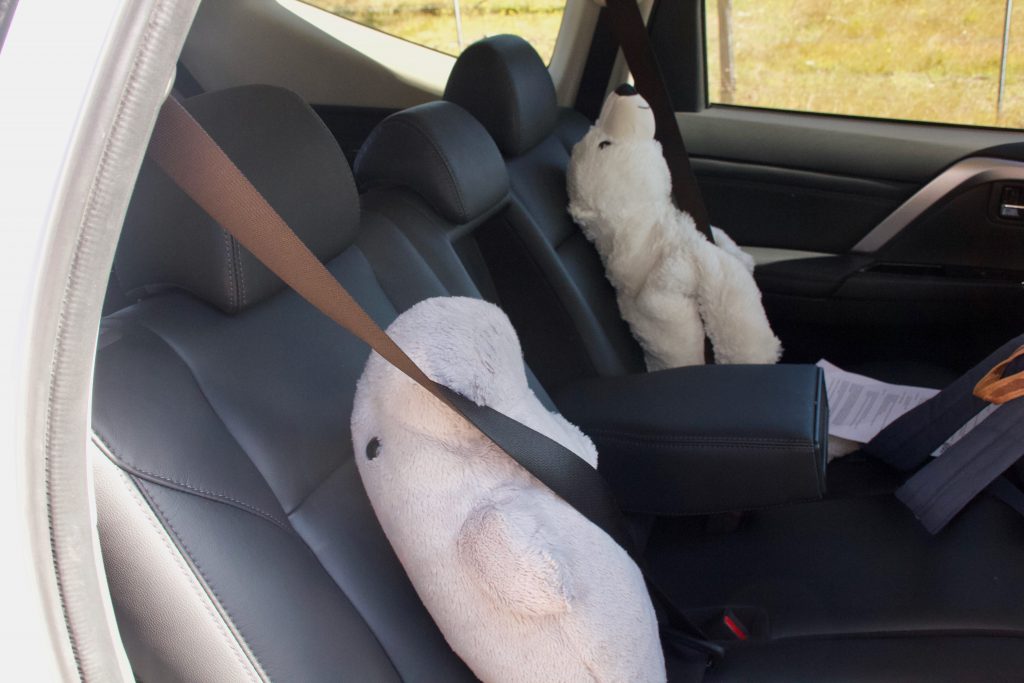
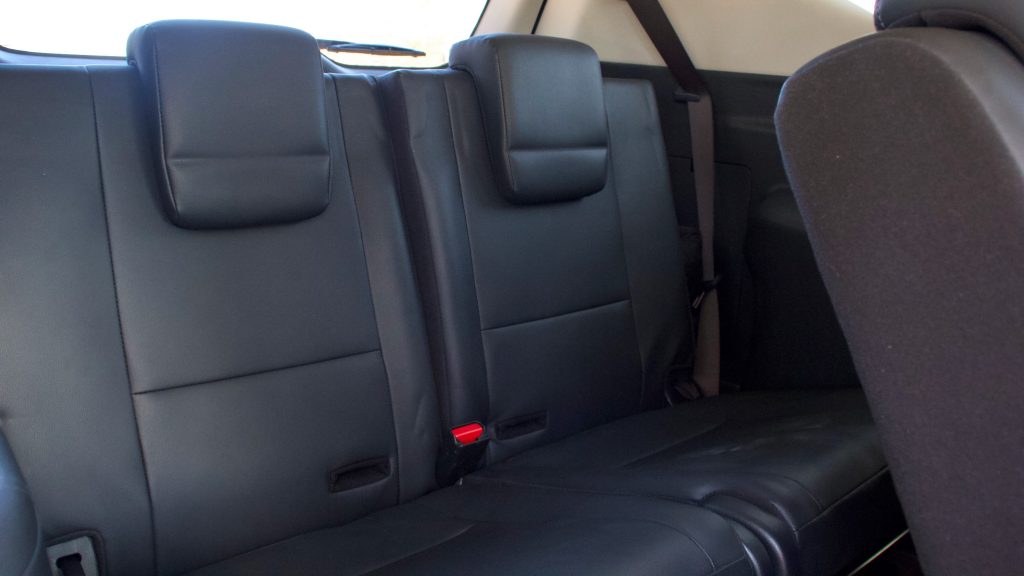

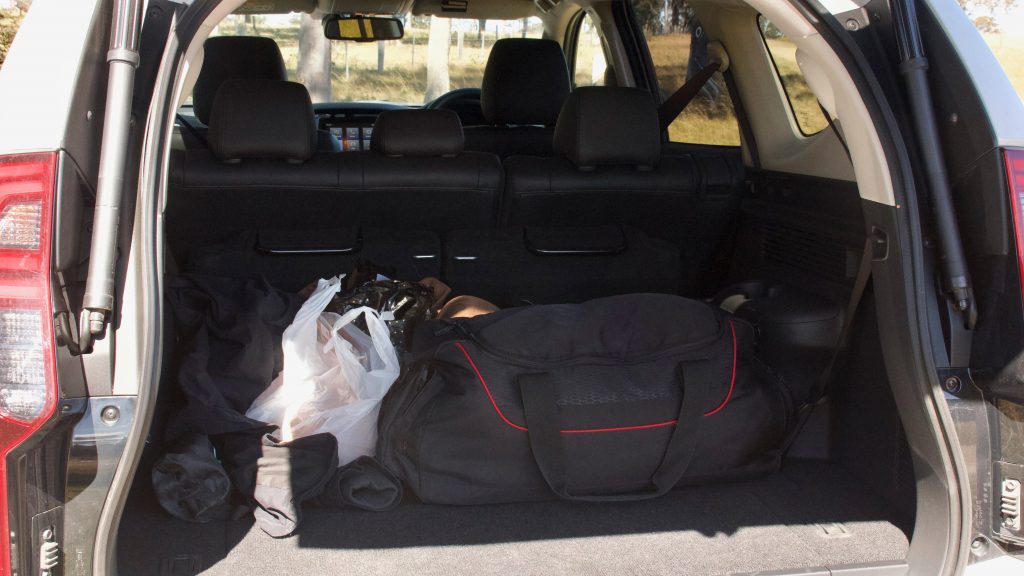
The third row of seating is definitely a kids-only zone as the space is quite tight for anybody over around 170cm tall. There are cupholders and a 12V socket back there for added convenience, however.
The powered rear tailgate is a nice touch as it is a large tailgate to lift, though it is very slow. The third-row seats are easy to erect or put away and with them in place there is a 131-litres of space available. Fold the third row down and this opens up to 673-litres, while folding the second row unlocks 1,488-litres – not a bad amount of space, but the smaller Skoda Kodiaq has a huge 2,005L of space with its seats folded.
Running Costs & Warranty: 9/10
The 2020 Mitsubishi Pajero Sport comes with the company’s five-year/ 100,000km warranty, although Mitsubishi are offering a seven-year warranty with three years free servicing at the time of writing. Roadside assist lasts 12 months, though is topped up with each yearly service up to four years in total.
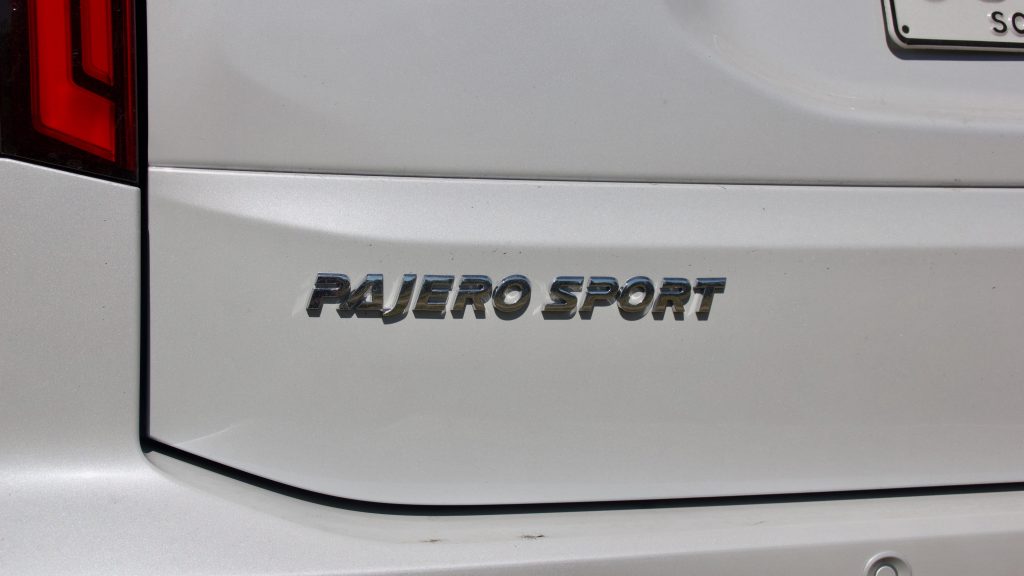
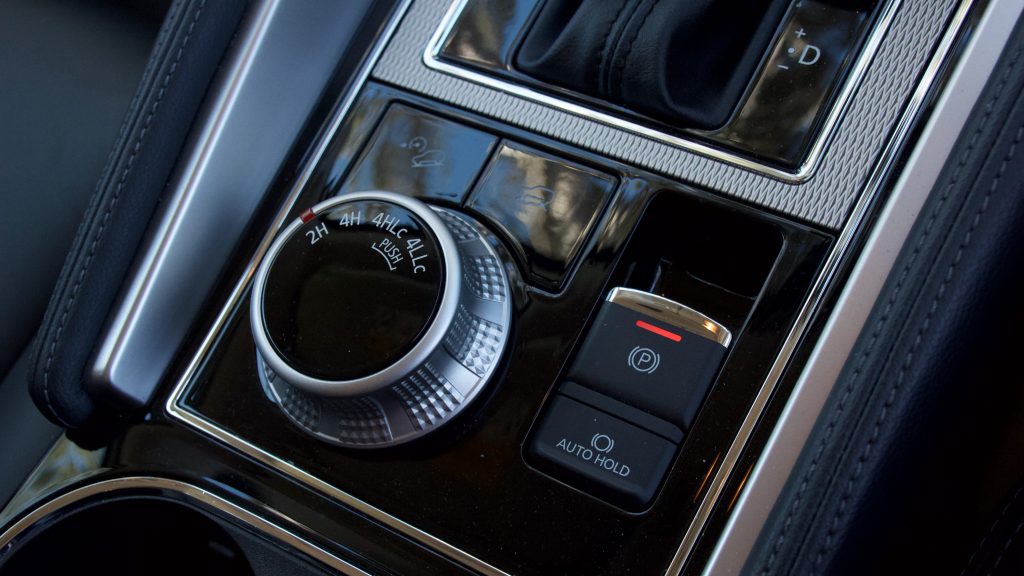
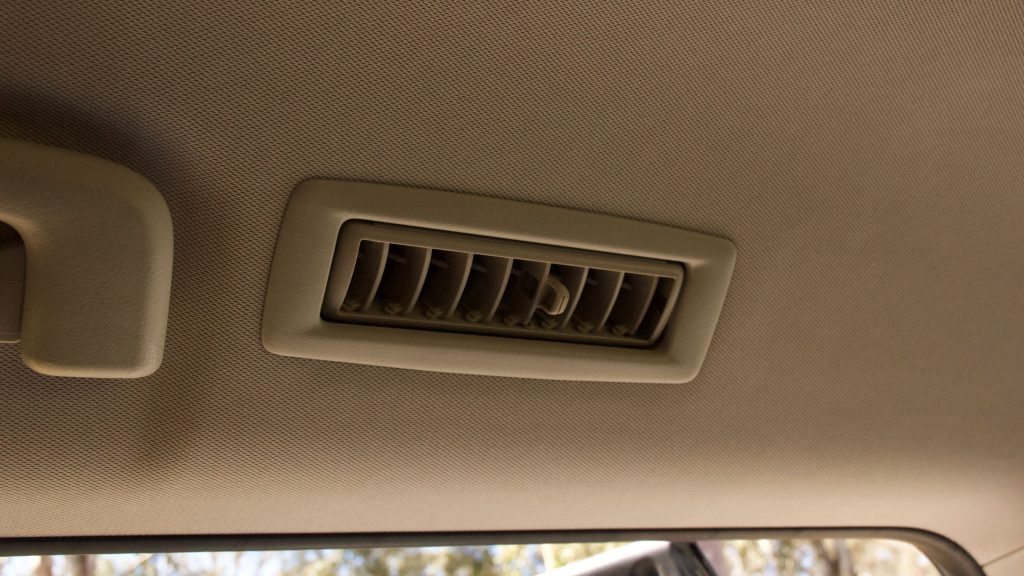
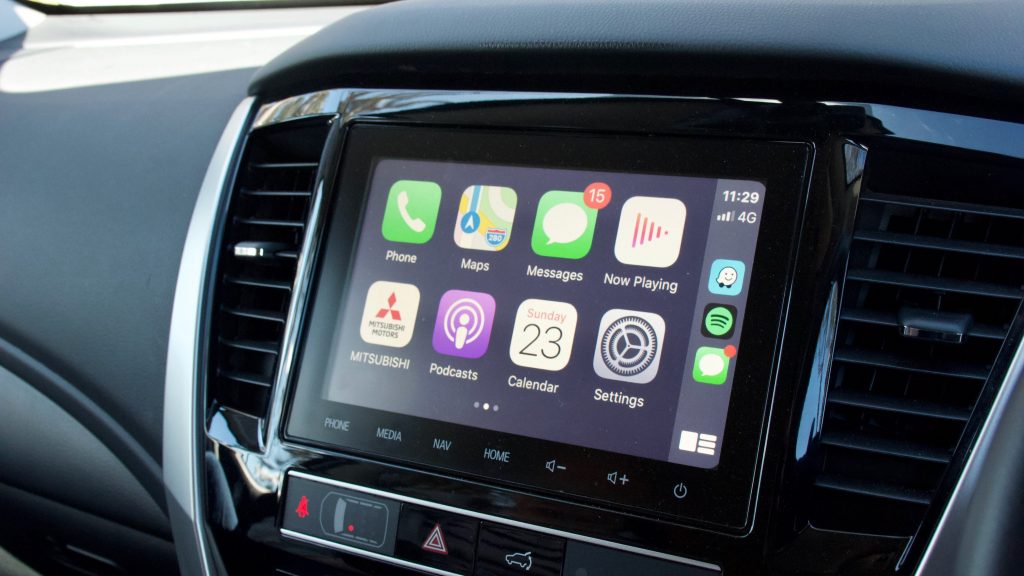
The cost of servicing the Pajero Sport over three years is $897 ($299 for each service) and its intervals are once yearly or every 15,000km, whichever comes first. The overall cost of ownership including fuel (at $1.35 a litre and for 15,000km a year) and servicing for three years is $5,757.
2020 Mitsubishi Pajero Sport Exceed DiscoverAuto Rating: 7.4/10
Choosing a Pajero Sport really comes down to a few variables: do you need off-road ability, and do you need seven full-size seats? If the answer to the latter is yes, then look elsewhere, but unlike a Santa Fe (etc), the Pajero Sport’s serious off-road ability gives it an edge over similarly priced crossovers – but only if you need it.
If you do need off-road ability, the Pajero Sport represents great value for money as it’s well equipped, cheap to maintain and a lot more practical and comfortable than the Triton ute on which it’s based. It could do with more grunt, some more finesse and some more features, but for those that need its all-round ability, the Pajero Sport is a pretty good option.
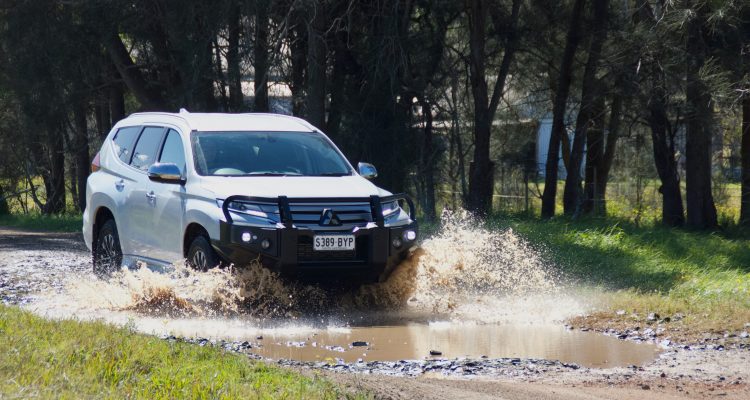
[…] unbranded system, though it would be nice to see a digital driver’s display (as used in the Pajero Sport and upcoming Outlander) compliment it for the premium feel that the Eclipse Cross is […]